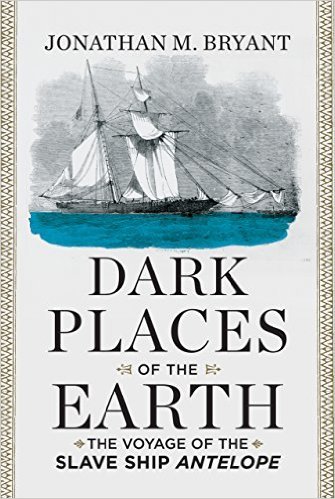

Purchase
The Voyage of the Slave Ship Antelope
Liveright
July 2015
On Sale: July 6, 2015
416 pages
ISBN: 0871406756
EAN: 9780871406750
Hardcover
Add to Wish List
Non-Fiction History
A dramatic work of historical detection illuminating one of
the most significant—and long forgotten—Supreme Court cases
in American history. In 1820, a suspicious vessel was spotted lingering off the
coast of northern Florida, the Spanish slave ship
Antelope. Since the United States had outlawed its
own participation in the international slave trade more than
a decade before, the ship's almost 300 African captives were
considered illegal cargo under American laws. But with
slavery still a critical part of the American economy, it
would eventually fall to the Supreme Court to determine
whether or not they were slaves at all, and if so, what
should be done with them. Bryant describes the
captives' harrowing voyage through waters rife with pirates
and governed by an array of international treaties. By the
time the Antelope arrived in Savannah, Georgia, the
puzzle of how to determine the captives' fates was
inextricably knotted. Set against the backdrop of a city in
the grip of both the financial panic of 1819 and the
lingering effects of an outbreak of yellow fever, Dark
Places of the Earth vividly recounts the eight-year
legal conflict that followed, during which time the
Antelope's human cargo were mercilessly put to work
on the plantations of Georgia, even as their freedom
remained in limbo. When at long last the Supreme
Court heard the case, Francis Scott Key, the legendary
Georgetown lawyer and author of "The Star Spangled Banner,"
represented the Antelope captives in an epic
courtroom battle that identified the moral and legal
implications of slavery for a generation. Four of the six
justices who heard the case, including Chief Justice John
Marshall, owned slaves. Despite this, Key insisted that "by
the law of nature all men are free," and that the captives
should by natural law be given their freedom. This argument
was rejected. The court failed Key, the captives, and
decades of American history, siding with the rights of
property over liberty and setting the course of American
jurisprudence on these issues for the next thirty-five
years. The institution of slavery was given new legal cover,
and another brick was laid on the road to the Civil War.
The stakes of the Antelope case hinged on
nothing less than the central American conflict of the
nineteenth century. Both disquieting and enlightening,
Dark Places of the Earth restores the
Antelope to its rightful place as one of the most
tragic, influential, and unjustly forgotten episodes in
American legal history.
Comments
No comments posted.
Registered users may leave comments.
Log in or register now!
| 


 © 2003-2025 off-the-edge.net
all rights reserved Privacy Policy
© 2003-2025 off-the-edge.net
all rights reserved Privacy Policy